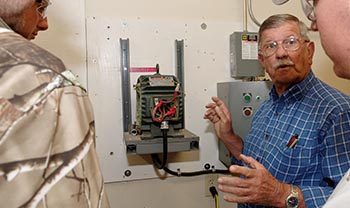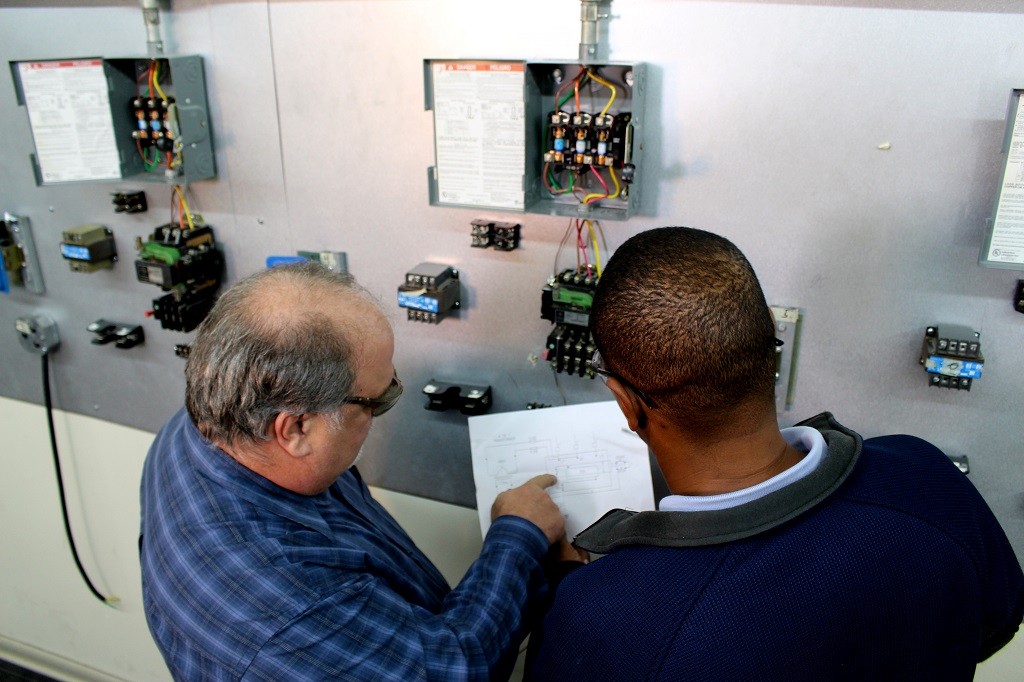
There are three ways to describe the role that you could perform when you graduate from I&E Technician Training: highly technical, demanding, and challenging. I&E (sometimes presented as E&I), technicians are some of the most important professionals working in industrial environments. After attending Instrumentation Technology Training at an I&E Technician School, you will have the skills and knowledge to design, troubleshoot, and repair different kinds of instrumentation and electrical equipment.
What You Will Learn During an Instrumentation Technology Training Course

After graduating, you will be most likely to work in industrial plants used for production or processing. This could include power generation, oil and gas industries, food processing, manufacturing, or even chemical production or processing. As an I&E technician, you will work with devices that control flow, levels, pressure, and temperature.
The different types of technologies that you may work with are vast. They could include large piping networks that carry liquids and gasses. You could also work around chemical systems where tolerances are low, so your I&E technician training will be especially important.
As an I&E technician, you could work on hydraulic and pneumatic systems, electrical systems, or even computer and networking systems. Your skills will be transferable to a number of industries, and only your ambition and the work that you put in to impress your employers can limit your career.
At ITI Technical College, we design our classes to progressively introduce you to different concepts and skill sets used in industrial maintenance and instrumentation management.
 As an example, you may learn about programmable controls and how they are used to automate machinery and processes within a production environment. While the modern industry does heavily utilize automation, that does not mean that machines alone can perform the jobs. Organizations need highly talented I&E technician program graduates to ensure that automated systems are always working as intended. Automation will likely always require human input, and your work could make the difference between an efficient system and one that ultimately fails at its task.
As an example, you may learn about programmable controls and how they are used to automate machinery and processes within a production environment. While the modern industry does heavily utilize automation, that does not mean that machines alone can perform the jobs. Organizations need highly talented I&E technician program graduates to ensure that automated systems are always working as intended. Automation will likely always require human input, and your work could make the difference between an efficient system and one that ultimately fails at its task.
Working as an I&E technician can expose you to a significant amount of pressure in the workplace. You will need to be able to think on your feet, recall your training, and have strong problem-solving skills. While this job can be challenging, it can also be highly rewarding. There is no better feeling than getting a system to peak operational efficiency or troubleshooting a control logic system and bringing it back online.
You will likely never get bored as an I&E technician, and that is one of the reasons why most instrumentation technology schools have a consistent flow of highly motivated and eager students.
How Much Can You Earn After Instrumentation Technology School?
In today’s complex economy, earning a comfortable and competitive salary is important, and it is not always an easy feat. Thus, you are likely to be wondering how much you could earn after completing the instrumentation technology school.
According to the Bureau of Labor Statistics, Electrical and Electronics Engineering Technicians earned a median annual income of $63,660 in 2017, which equates to approximately $30.60 an hour. While entry-level technicians may not earn this much, there is certainly room for growth within the industry. Experienced technicians who have demonstrated their skills over several years can earn much more lucrative annual salaries. Consulting roles are also a potential outcome after you have gained experience in your career. When you study at an instrumentation technology school, you will be opening a pathway with almost unlimited potential.
It is Time to Enroll and Secure Your Future
Because there is high demand for instrumentation technology training courses, you should reach out to our admissions staff to discuss enrollment requirements as soon as possible to secure your spot for the upcoming semester. Call us or fill out a form today to learn more about the prerequisite study and to ask any general questions that you may have about instrumentation technology training courses. Take the next steps toward your future and live a better life!
For more information about graduation rates, the median debt of students who completed the program, and other important information, please visit our website at: https://iticollege.edu/disclosures/




